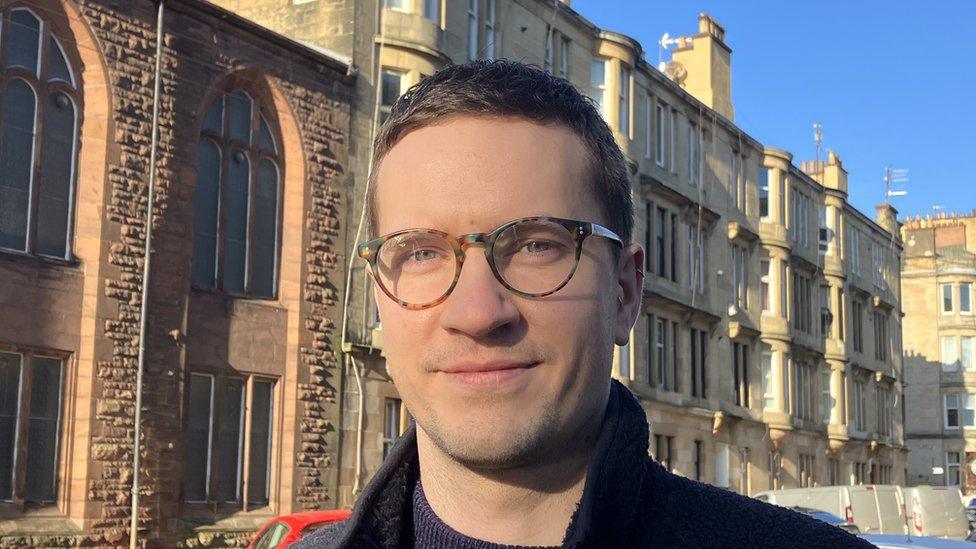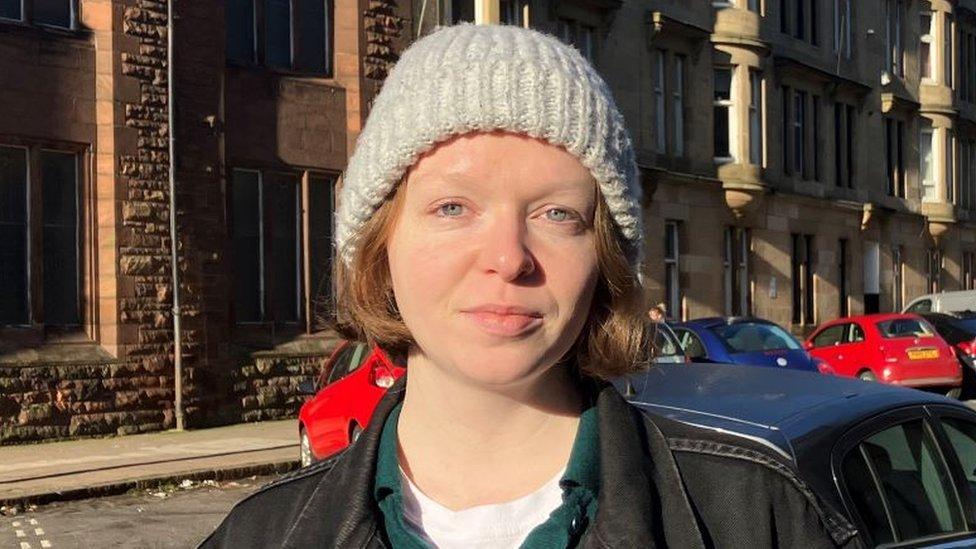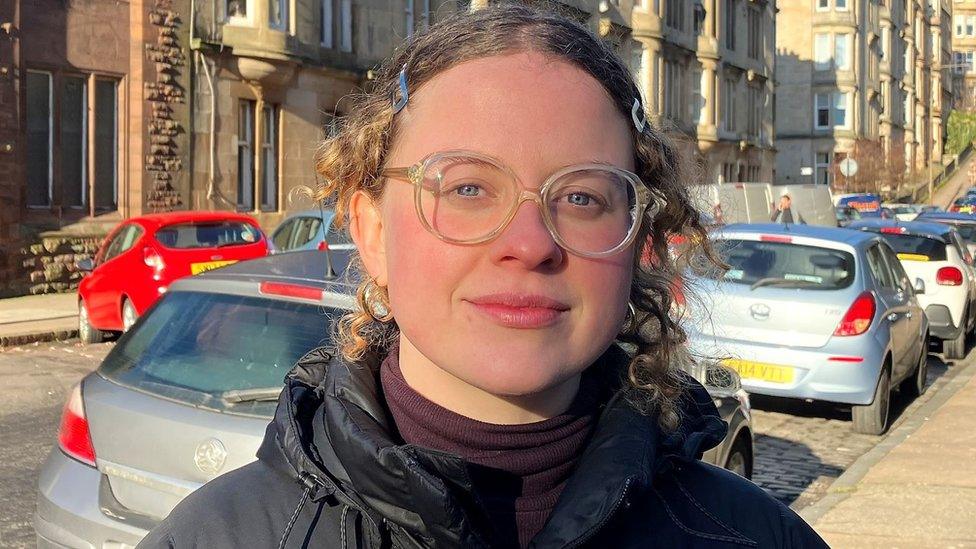'Double-deposit' leaving first-time home buyers stuck
- Published

Paul Bradley and his partner have been saving for 10 years
First-time buyers in Scotland say they are being kept off the property ladder by a system that means they often have to find two separate deposits to secure a home.
Paul Bradley and his partner have been saving for 10 years and are still nowhere near able to afford buying a one-bedroom flat in Glasgow.
They have saved a large enough deposit to convince lenders to give them a mortgage but Paul says the reality is that they will have to bid £20,000 to £30,000 over the official valuation to buy a flat.
Paul said: "People simply cannot afford to pay for the extra deposit that's needed."
In Scotland, mortgage providers will only lend based on the value of the property stated in the Home Report - and not the actual amount a home-buyer has paid.
This is particularly a problem for first-time buyers who have no cash from a previous sale.
Upfront costs
Glasgow-based mortgage adviser Gerry Hughes compared the situation to a "double deposit".
He said: "In Scotland, the vast majority of properties are selling at least 10% above the Home Report value.
"If you don't have the bank of mum and dad, or somebody helping you, you could be saving very hard to get a 10% deposit together, and that won't be enough to get you the property."
For example, if a flat is valued in the Home Report at £120,000, a 10% deposit would be £12,000.
But it might take an offer of £138,000 to actually buy the property, leaving the buyer to find the whole £18,000 above the valuation.
Under the current system, the buyer can't borrow that extra cash, which means they are facing an upfront cost of £30,000.
The system in the rest of the UK is different with each buyer getting a home survey and valuations can differ.
The same problem can exist but the value is not set by one report made before the property goes on the market.
Mr Hughes said: "The lender isn't interested in money you're paying over and above the valuation."
Since 2008, anyone selling a house in Scotland has to get a Home Report which includes a survey of its structure, an energy report and a valuation.
It replaced the old system, which is still in place in the rest of the UK, where potential buyers pay for a survey of each property they wanted to buy.
The Home Report means buyers don't have to pay for multiple surveys but it also mean they usually can't borrow money above the value stated in the report - even though most properties sell above that price.
According to recent research from the Bank of Scotland, first-time buyers faced an average deposit of £41,442 to get on the ladder in 2022.
The pressure on first-time buyers also comes from soaring house prices and the comparatively slow rise in wages.

Glenna says that when she tries to raise this issue with older generations she is "always dismissed"
For Glenna Jones, her generation "are perpetually stuck in this feeling of being in our early twenties" because of how expensive private rents are.
"It's so expensive just to try to pay rent, so if you're trying to get on the property ladder and in the meantime be a private renter, how is that even possible?"
Glenna says that when she tries to raise this issue with older generations, she's "always dismissed".
"I was actually reading on a website the other day about how to get mortgage help, and one of the main things they say you should do is cut back, go live with your parents again, or buy a simple car.
"Not everyone has parents they can go live with, that's not realistic, and I can't afford a car of any kind."
She added: "I'm from a working class background, and I definitely don't have the financial support of my parents."

Aggie Verity says her generation are missing out
For Aggie Verity, owning her own flat feels like "a dreamscape".
"I think we are missing out," she told BBC Scotland of her generation.
"We're continuing to pay for the cost of this deregulated rental market, where we apparently trust landlords to regulate themselves."
She says that by her age of 25, her father had already bought his own house for £19,000.
"I just had a cautionary look around, and for the same size house now you'd be paying £300,000," she said.
For Mr Hughes, a key step towards helping younger people get on the property ladder would be "doing away with the home report".
He said he worked in the market long before the Home Report came in, and although buyers would have to pay for several valuations, he would be "happy to pay for a few valuations at a cost of a few hundred pounds instead of thousands of pounds over the valuation of a property".
"When I first started off, the marketplace was entirely different," he said.
"There doesn't seem to be any help there now to try to help first-time buyers on the market and it's something that really needs to be looked at."
Raising rents
He added: "The hopes and aspirations that we lay down to our children are getting taken away from underneath them."
Paul Bradley agrees that the government needs to modify and change legislation so it is more fit for purpose in 2023.
He said: "People simply cannot afford to pay for the extra deposit that's needed, on top of the normal deposit we all have to pay."
For Aggie, she hopes for a more regulated rental market to stop profiteering landlords from raising rents.
She said: "I don't dream of social mobility at this minute in time, I dream of security and stability and knowing that this roof over my head is one I'm going to have in the future."
A Scottish government spokesperson said: "Scotland continues to be a good place to buy a first home, with the average first-time buyer spending nearly £100,000 less for a property than those in England.
"Our first-time buyer relief for Land and Buildings Transaction Tax saves first-time buyers up to a further £600."
The spokesperson said the Scottish government was unable to influence the lending criteria of individual mortgage providers and said it was committed to longer-term reform of the rented sector to improve standards and affordability.
They did not respond to BBC Scotland's specific question over whether they would consider scrapping the Home Report.